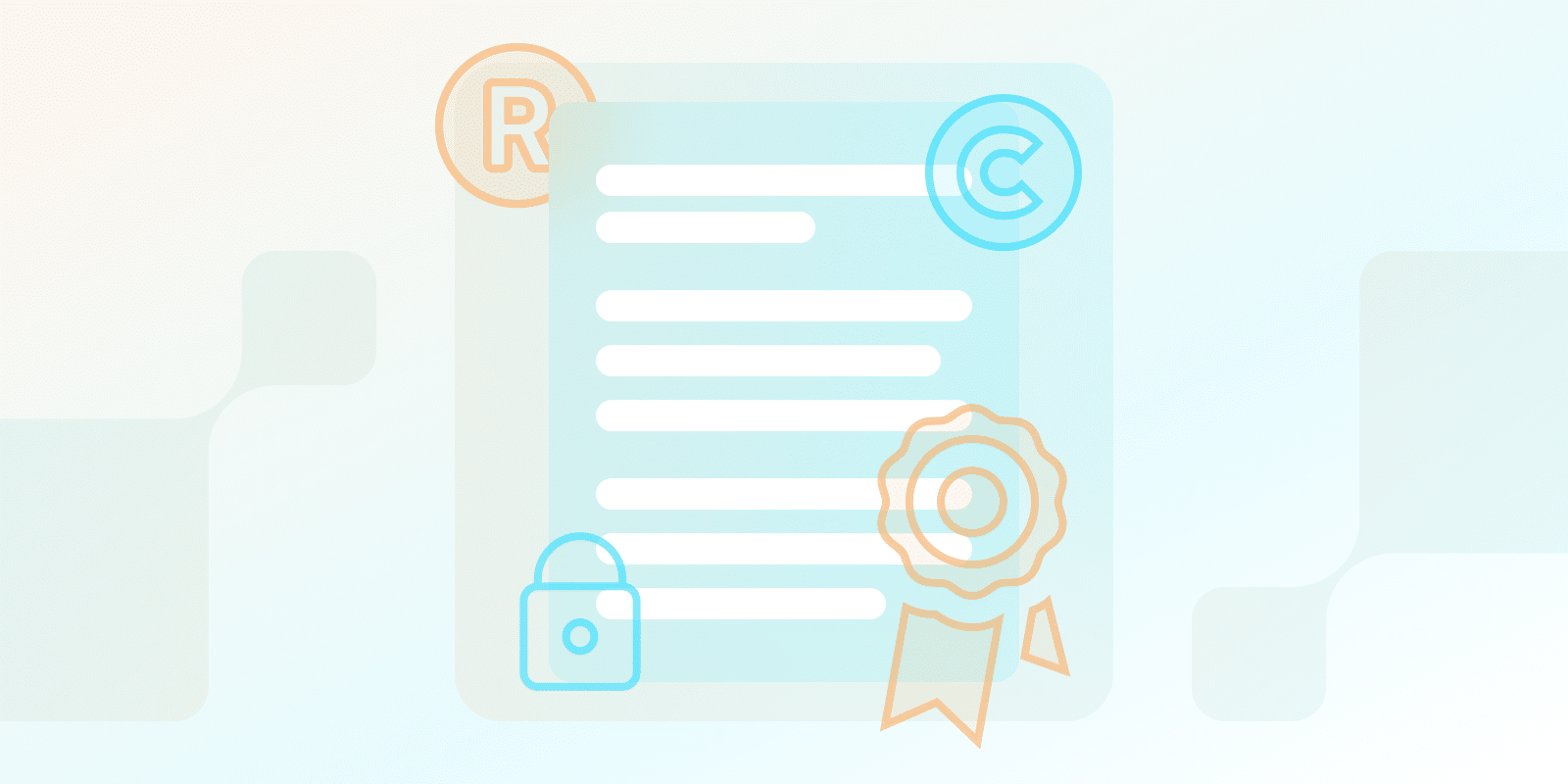Legal and Compliance
What is SaaS Intellectual Property?

What is SaaS intellectual property?
Intellectual Property (IP) in the SaaS industry refers to the assets that your company has created and have value commercially. IP prevents third parties from stealing your property to obtain unlawful profit. These assets can include anything from software code to designs and logos to proprietary company data and unique processes.
Is SaaS protected by copyright?
SaaS copyright is automatic when you set up your business. It’s against the law for another party to copy any proprietary elements of your software codebase, the visual design of your website or software, or anything used for marketing purposes. Third parties must seek your permission before they can use or reproduce anything you own by copyright.
Does my company own my IP?
It’s not guaranteed that your SaaS company owns your IP outright. It depends on drawing up the correct SaaS contracts and agreements with all the parties you work with. Agree in advance with contractors and partners who own the copyright to the work you produce.
Can you patent SaaS?
Since patents are typically difficult to obtain, time-consuming, and relatively expensive, businesses don’t use them for everything. Patents could be for something intangible as well as tangible. It’s possible to patent an algorithm or process, for example. The main criterion for a patent is that it should be used for something innovative or valuable.
What are the four types of intellectual property?
The four types of intellectual property include:
- Trademarks: Anything that represents your brand, like logos, names, and taglines.
- Copyrights: Typically what you think of as intellectual property, like creative work. This could be code, visual designs, or content.
- Patents: You own the rights to your software’s functionality, such as a particular feature.
- Trade Secrets: Confidential or proprietary knowledge owned by your business, such as customer data or processes.
| Characteristic | Trademarks | Copyrights | Patents | Trade Secrets |
|---|---|---|---|---|
| Protection Coverage | ||||
| Protected Elements | Brand identifiers, logos, names, taglines | Creative works, code, designs, content | Unique features, algorithms, processes | Proprietary knowledge, customer data, internal processes |
| Duration of Protection | Renewable every 10 years | Creator’s life plus 70 years | 20 years from filing date | Indefinite (as long as kept secret) |
| Implementation | ||||
| Registration Required | Recommended but not mandatory | Automatic upon creation | Mandatory application process | No registration needed |
| Cost to Obtain | Moderate | Low | High | Low |
| Business Impact | ||||
| Market Value | Brand recognition and trust | Content monetization | Innovation protection | Competitive advantage |
| Enforcement Method | Legal action against infringement | DMCA takedowns and legal action | Patent infringement lawsuits | Non-disclosure agreements and legal action |
Evaluate opportunities to patent your property. Do this by consulting an IP expert, which could be a legal professional.
Some SaaS companies may want to consider using open-source licenses for parts of their software. Do this if it fits with your SaaS business model.
Conclusion
Protect your intellectual property by securing the right trademarks, copyrights, and patents. Understand what you can protect, seek advice from professionals, and take steps to secure your IP. Make sure your definition of what counts as Intellectual Property is wide enough.